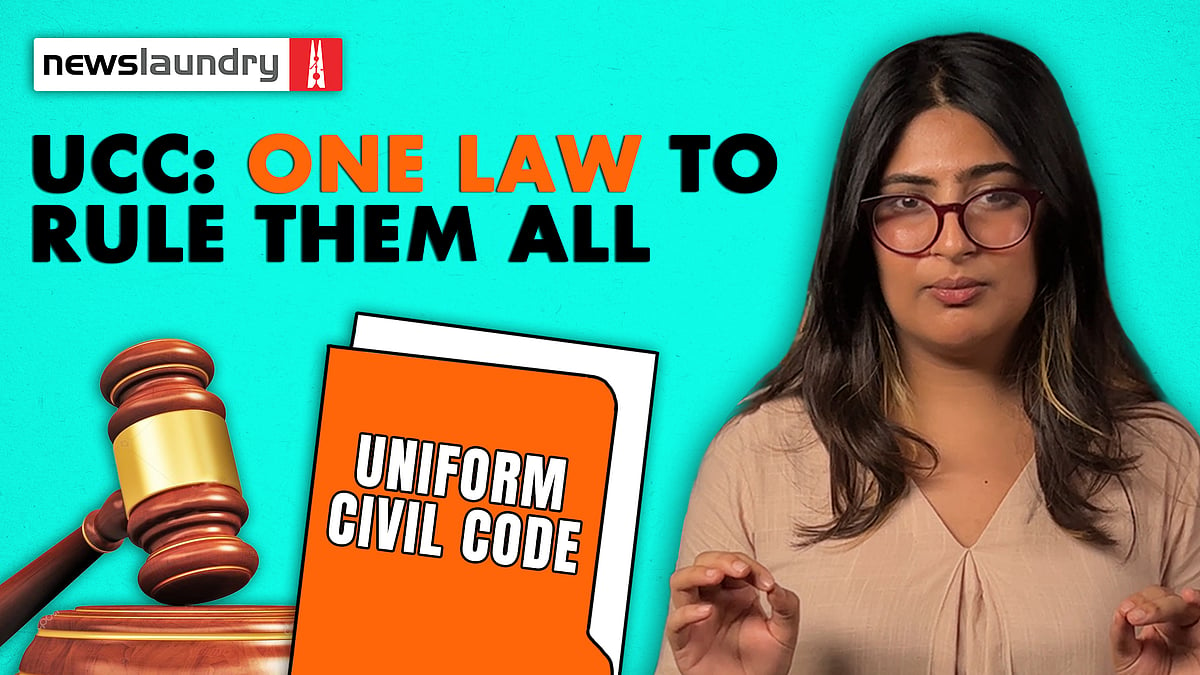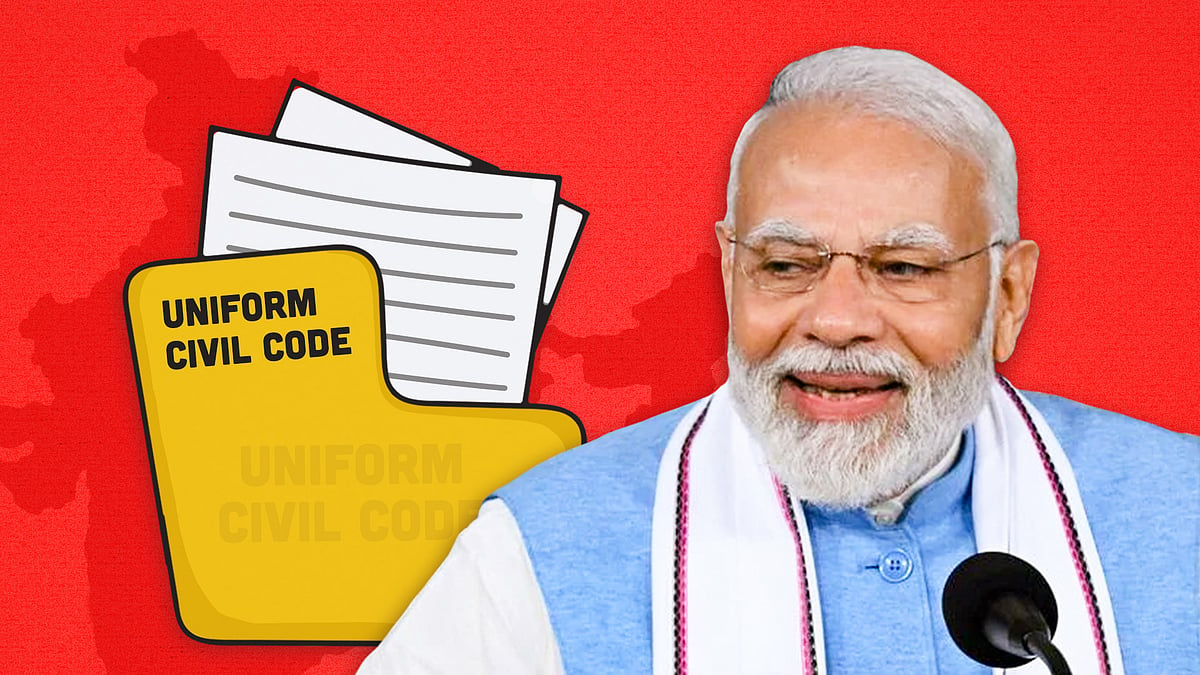Why the Law Commission should present a model UCC to seek public opinion
Only then can its acceptance be gauged, given the diversity of religions and regions it must span.
On June 14, the 22nd Law Commission had sought the views of the public at large on the issue of the Uniform Civil Code. It led to an outpouring of views and suggestions – almost 50 lakh responses from the general public.
With the deadline for views expiring theJuly 28, the Law Commission must now take another step forward and present a model UCC and invite public feedback. Here’s why.
When we talk about the UCC in India, four articles of the Constitution come to mind.
Article 44 says the state shall endeavour to secure for the citizens a Uniform Civil Code throughout the territory of India. Article 25 guarantees all citizens the freedom of conscience and the right to freely profess, practice and propagate religion, subject to public order, health and morality.
The former is a directive principle of state policy – a guiding principle, a moral force that is not justiciable. But the latter is more important since it’s a fundamental right that is enforceable in a court of law. Article 25 also confers upon the state the power to make any law regulating or restricting any economic, financial, political or other secular activity that may be associated with religious practice.
Then there’s Article 51A, which casts a duty on every citizen to promote harmony and the spirit of common brotherhood. And finally, Article 13 says any law that abridges the rights conferred by Part III of the constitution – referring to fundamental rights – shall be void. That law includes customs and usages. Therefore, any Uniform Civil Code will have to undergo the test of judicial scrutiny in the context of Article 13.
The need and desirability of the UCC must be discussed in the light of these articles, and also the report of the 21st Law Commission that said it’s neither desirable nor feasible at this stage. But what is that stage where India will be ready for a UCC? There’s been no sign of it in 75 years of independence.
The problem with a UCC is that customs and laws differ from religion to religion and from region to region. It’s difficult to ascertain which communities, religions, traditions and customs will be used in a proposed UCC. India is multireligious, multipolar and multilingual and the UCC must accordingly span a gamut of issues. People are sensitive when it comes to their customs, traditions and religious practices. Objections to the UCC have already been raised by tribal leaders, the All India Muslim Personal Law Board, the Catholic Bishops Council, and the Shiromani Gurdwara Parbandhak Committee.
Additionally, the chief ministers of some northeastern states have already expressed their reservations about the UCC. Articles 371A and 371C of the Constitution prohibit the legislature from making laws for the states of Nagaland and Mizoram that are violative of their customs and traditions, unless approved by their respective state legislatures. So, before passing a UCC that would apply to these states, the government may have to first amend these articles of the Constitution.
So, the UCC is an all-India issue, one that involves a large number of people. There already exist certain laws passed by Parliament – like the Special Marriage Act and Indian Succession Act – that have been made optional for people belonging to different religions. But people use these laws only when it’s desirable in their own interests. It has also been observed that there are various subjects on which uniformity already exists, scrupulously followed by citizens as it serves their purposes. For instance, succession in agricultural properties, marriages through courts, and maintenance after divorce.
So, the hurdle currently faced by a UCC is that prominent voices, including legal luminaries and religious leaders, are saying there is no model UCC on which a debate can take place. Only once a model UCC is set out in the public, they say, can it be considered.
Therefore, it is advisable that the Law Commission comes forward with a model UCC on various subjects and put it in the public domain to invite views and opinions. If the model UCC is welcomed by a majority of people belonging to different religious groups, then it should be adopted initially on a voluntary basis to gauge its acceptance. It can subsequently be made mandatory for people to follow.
After all, it’s been said that public opinion makes law. But sometimes law also makes public opinion.
SM Khan is vice president of the India Islamic Cultural Centre, New Delhi, and former press secretary to the President of India. Shahryar Khan is an advocate in the Delhi High Court.
 Explained: How Uniform Civil Code will reshape India’s legal landscape
Explained: How Uniform Civil Code will reshape India’s legal landscape Is BJP finally summoning the political will to introduce a Uniform Civil Code?
Is BJP finally summoning the political will to introduce a Uniform Civil Code?